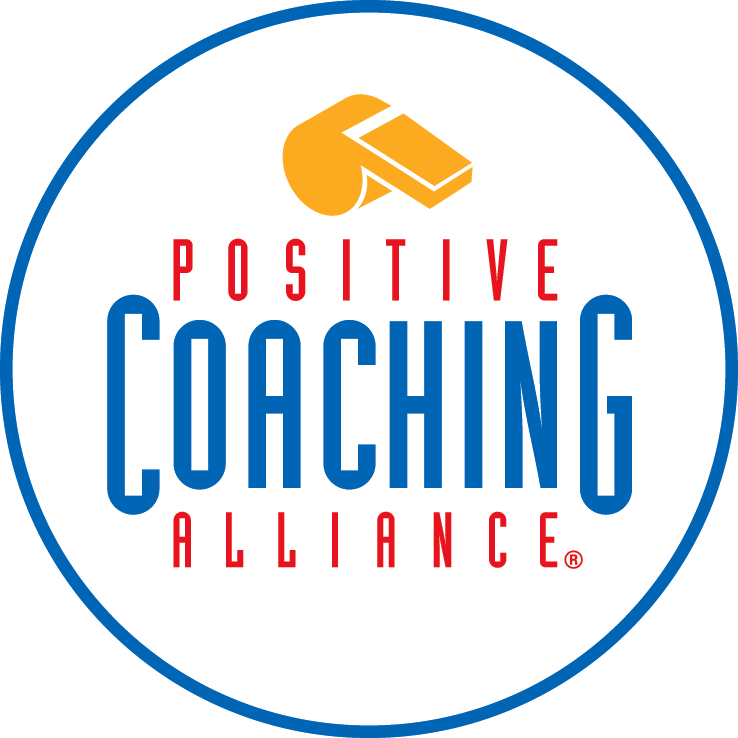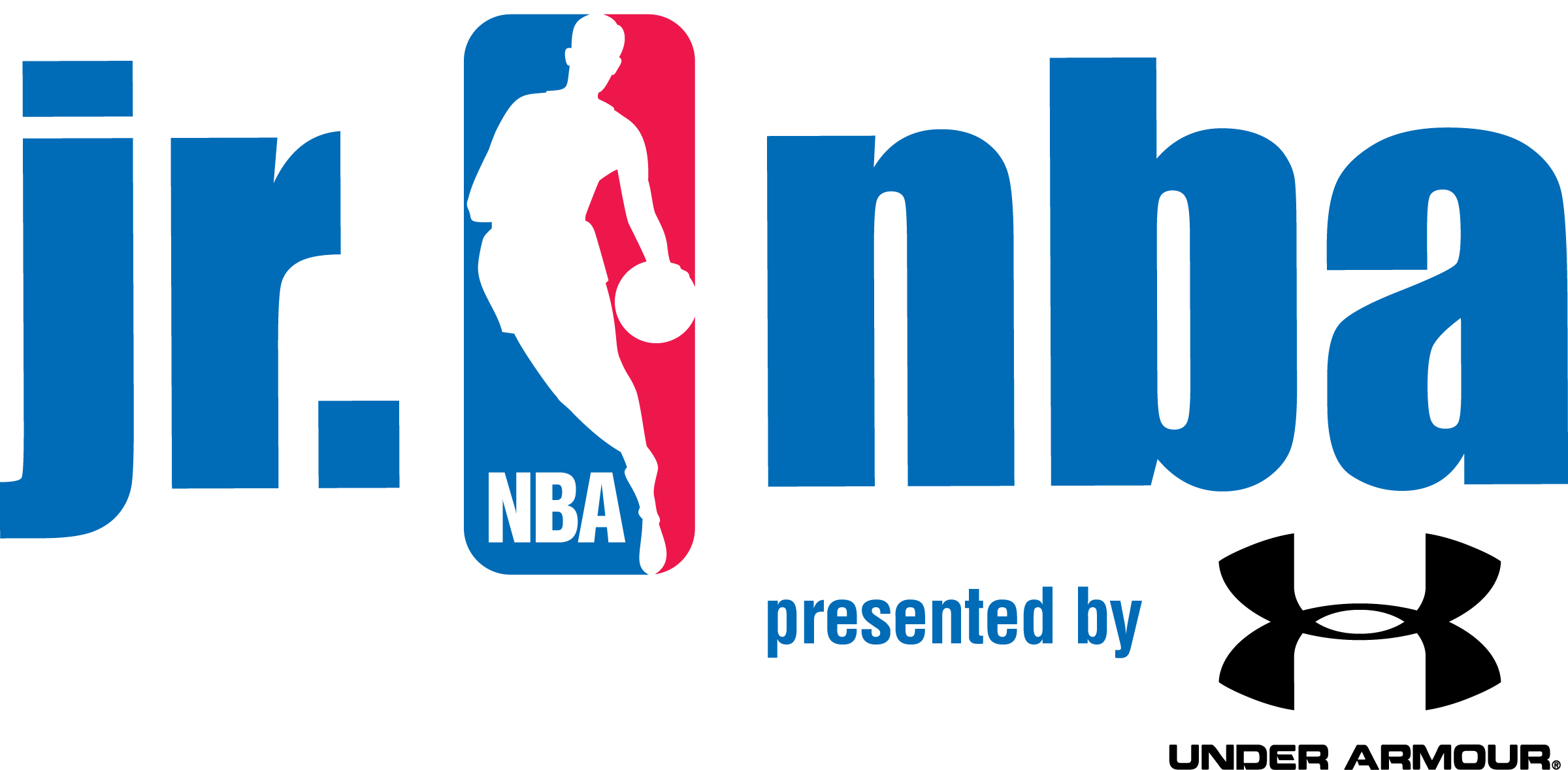
Basketball on the Edge – 10 Tips For Getting The Most Out Of Your Coach
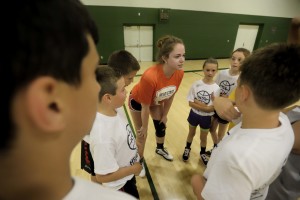
Players often misunderstand the role that a coach can play in their success both on and off the court. Leaders in all walks of life rely on coaches to help guide them on their path. Being coachable is an important characteristic to your success as a basketball player. How can you prepare yourself to get the most from your coach? Try these 10 tips!
1. Ask yourself a simple question.
Do you want to get better? If the answer is yes, then you’re ready to take advantage of the knowledge and guidance a coach can provide. If the answer is no, then why waste your time? Go find something else to do where getting better is important to you.
2. Know what you want improve.
Is there a specific skill you want to improve? (I want to be a better three point shooter under game conditions.) Some aspect of your game that is a weakness? (I always turn the ball over when I go left) A strength that you want to build on? (I’m a good defender, but I’d like to get even better rotating into help defense). Once you know what you want to improve, you can set specific goals about what you want to get from a coach.
3. Choose a growth mindset.
A growth mindset simply means that you believe in your ability to get better at something. If you believe that your effort and determination (things you control) will result in improvement then you are on your way to reaching your goals. The coach provides guidance and instruction while you provide the energy and focus that is required to improve.
4. Talk with a successful or more experienced player.
Find out how they made the most out of coaching. What strategies did they employ to maximize the advice of a coach? Learning from those who have already done something that you want to do is a smart strategy in basketball and in life. You might pick up a concept or idea during your conversation that opens the door to maximizing your coach’s advice.
5. Be open to new ideas.
John Wooden said, “It’s what you learn after you know it all that really counts.” If you think you have all the answers then you won’t be willing to listen with an open mind. Too often players get defensive when coaches tell them something, especially when criticism is involved. If you want to improve, you must be able to accept the idea that you aren’t perfect and that there is always room for improvement regardless of how good a player you are.
6. Be ready for a challenge.
A good coach will push you to be your best. A coach’s job is to help players get to a level that they might not be able to reach on their own. You must be willing to accept the challenges that your coach puts in front of you. The results will show AFTER you rise up and meet the challenge, not before.
7. Put in the work.
Your coach won’t be doing the physical and mental work it requires to meet your goal. That is up to you. A coach can give you the best advice, design the perfect workout, or have a great game plan, but the fact is, you have to put in the time and deliberate practice that improvement requires.
8. Individual effort is required.
I say this to players all the time, “If the only time you pick up a ball is at your team practice or when other people are in the gym with you, your success will be limited.” You have to make time to take what you have learned from your coach and work on it on your own. One hour a week of individual training with a coach won’t make much of a difference unless you put in time between coaching sessions or team practices.
9. Don’t expect instant results.
Coaching will help you get results. It just won’t happen overnight. It takes time to incorporate what you have learned into your game. Be patient, keep working, and believe in the process. If you get down on a coach because you aren’t suddenly scoring 20 points a game after 4 hours of training you’re expectations of what it takes to be successful are unrealistic.
10. Keep the lines of communication open.
Have frequent conversations with your coach about how you are progressing. You and your coach will be able to share your perspectives with each other and make sure you are on the same page. This is a great way to look at your goals and see if they are being met or not. Maybe new goals need to be set, or your areas in need of improvement have changed. Open communication improves the chances that you’ll get the most out of coaching that you possibly can.
Your coach can be the best resource in your quest to become a better basketball player. Use these tips and you’ll be on your way to a great player-coach relationship that helps you maximize your development as a player!
Click here to register for one of our upcoming programs!
Sign up now to get a “Head Start” on your competition with our free basketball tip of the day delivered straight to your inbox. Click below, enter your email and we’ll also send you our E-Book, “Mental Toughness, Improve Your Brain – Improve Your Game”.
Basketball on the Edge – 7 Tips to Making High Performance a Habit
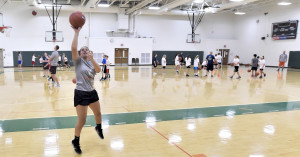
Every player wants to consistently play at their best and yet many players fall short of that goal. Here are 7 tips to help you turn high performance into a habit.
1. Practice the fundamentals
The fundamentals of the game and your performance are closely linked. You must master the fundamentals through repeated deliberate practice over time. Great players never get bored with the fundamentals. They understand the need to put in the time on the basics so that the performance of those skills becomes automatic. When the fundamentals are automatic, other more creative parts of a player’s game can begin to develop.
2. Lead with your strengths
Know what your strengths are and maximize them every time you step on the court. If you are a good shooter in catch and shoot situations, learn to move without the ball to get yourself open for those opportunities. Games are the time to do what you do well. Training and practice are the times to work on your weaknesses.
3. Maximize your teammates
Learn the strengths and weaknesses of your teammates. You need their help to be at your best. When you understand the skills they bring to the team, you can help put them in position to be successful. Here’s an example. If a player on your team is not a good ball handler, don’t give them the ball in the backcourt against a press if you can avoid it.
4. Be receptive to coaching
Take the feedback that you receive from your coach and respond in a positive way. Don’t take your coach’s criticism personally. A coach’s job is to help you improve and criticism is part of the process. How you respond to coaching determines how quickly you will improve your skills. Great players understand that they must continually strive to get better and a coach’s guidance is critical.
5. Focus on what you can control
Effort, attitude, and energy are all things under your control during a game. You cannot control your opponents, the officials, the crowd, or your coach. If you come into every game determined to give your best effort, have a positive attitude (even when things go poorly), and bring a high level of energy you will have more control over your performance.
6. Hone in on the moment
You cannot control the outcome of the game. Your opponent may be a lot better than you and your team. If you are focused on the outcome of the game (most likely a loss in this case) you are likely to forget what you should be doing in the moment. Having a “next play” mentality means focusing on the moment at hand and not worrying about the ultimate outcome. Think “What should I be doing right now?” to maximize my chances of success. Concentrate on the process and the results will take care of themselves.
7. Motivate yourself
If you’re looking for your coach, parents, or teammates to motivate you for a big game, you’re looking in the wrong place. The best players are intrinsically motivated. They know their “why”. They understand why they play the game and why it’s important to them. You should take responsibility for being ready to play rather than relying on something external to motivate you to be at your best.
Follow these 7 tips to make high performance a habit and unlock better performances out on the court.
Click here to register for one of our upcoming programs!
Sign up now to get a “Head Start” on your competition with our free basketball tip of the day delivered straight to your inbox. Click below, enter your email and we’ll also send you our E-Book, “Mental Toughness, Improve Your Brain – Improve Your Game”.
Basketball on the Edge – 4 Types of Mental Toughness That Are Required For Improved Performance
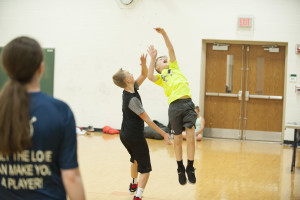
There are four types of mental toughness that can impact how well you play under different circumstances. Improving each type of mental toughness can unlock improved performance out on the court.
1. Big Moment Toughness
Are you able to use the pressure of the moment to focus yourself on the right things? A “clutch” player can be described as having Big Moment Toughness. This player wants the ball in their hands when the game is on the line. They are able to execute their plan and utilize all their skills when they are needed most. They tune out the crowd, the officials, the opponent, and are able to dial in to what they need to do in the Big Moment. They are ready and able to react to whatever game scenario may present itself. Michael Jordan is the ultimate basketball example of Big Moment Toughness.
2. Persistent Toughness
How willing are you to keep going when things get tough? A player with persistent toughness will show up for training or practice even when they don’t feel their best. They may have an off-shooting night and yet they still compete hard and try to help their team in other ways. The Persistently Tough player fights through fatigue during games and practices and keeps their energy level high. A player with Persistent Toughness focuses on the factors they can control like their effort, attitude, and focus. The Persistently Tough player understands that success is a process and may not happen overnight. Persistent Toughness is synonymous with grit. UConn Women’s Basketball Coach Geno Auriemma describes the difference between good players and great players in this 40 second video that makes clear why Persistent Toughness is so important.
3. Decision-Making Toughness
How willing are you to make mistakes and accept the responsibility when a decision you make on the court goes wrong? Confident players have Decision-Making Toughness. They are aggressive and know what they are capable of doing. A long pass? Is it open? What is the likelihood the pass will reach its target. A player with Decision-Making Toughness is able to read the situation and act accordingly. They are able to weigh the risk and reward of an action in real-time, instantaneously, and under pressure. Many times players who don’t play much will lack this Decision-Making Toughness. They play tentatively, afraid to make a mistake. These players are playing not to lose and often they do NOTHING on the court out of the fear that doing SOMETHING will lead to a mistake that gets them pulled from the game. Players with Decision-Making Toughness play to win.
4. Resilient Toughness
How do you deal with setbacks, problems, and challenges? Players with Resilient Toughness remain confident even in the face of a setback. Down fifteen points at the half? We can come back to win. Shot 1 for 8 in the last game? I’m due for a big night tonight. Turned the ball over a few times against the press? I’m going to change my approach and attack the press. The player with Resilient Toughness bounces back quickly when something goes wrong. Develop a ritual to help you bounce back and refocus. Take a deep breath or two, count backwards from 5, give yourself a tap on the head. A player with Resilient Toughness learns from challenges and comes back stronger the next time. Their confidence is not shaken. They know that the next time they are in that same situation they’ll be better prepared to come out on top.
Click here to register for one of our upcoming programs!
Sign up now to get a “Head Start” on your competition with our free basketball tip of the day delivered straight to your inbox. Click below, enter your email and we’ll also send you our E-Book, “Mental Toughness, Improve Your Brain – Improve Your Game”.
Basketball on the Edge – The 1 Percent Rule: Why a Few People Get Most of the Rewards by James Clear
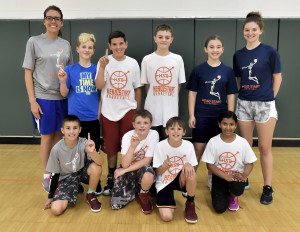
Change the word people in the article title to players and it’s easy to apply the 1% rule to basketball.
“You only need to be slightly better than your competition, but if you are able to maintain a slight edge today and tomorrow and the day after that, then you can repeat the process of winning by just a little bit over and over again.” – James Clear
Click here to read the article by James Clear
Click here to register for one of our upcoming programs!
Sign up now to get a “Head Start” on your competition with our free basketball tip of the day delivered straight to your inbox. Click below, enter your email and we’ll also send you our E-Book, “Mental Toughness, Improve Your Brain – Improve Your Game”.
Basketball on the Edge – Top 10 Ways To Be Game Ready And Improve Your Performance
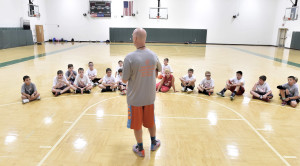
Good players are always looking for ways to improve their performance in games. Obviously, physical ability and basketball skill are two important components to playing at a high level, but often winning the mental game is just as critical. Mental readiness helps you to be at your best and reduce the pressure you feel prior to a game. Use these 10 tips to improve your readiness so you can get out on the court and perform at your peak.
1. Be well rested prior to the game so you have good energy and are thinking clearly once the game begins. A good night’s sleep and/or a quick nap will have your mind and body prepared for optimal performance.
2. Plan out your pre-game meal to optimize the way you feel and have plenty of energy to play hard for the entire game. Pay attention over time to what meals work for you. Figure out what foods make you feel your best. Everyone has different tastes and preferences so the key is finding what works for you. Along the same line, make sure you are properly hydrated (water is best) before, during, and after the game.
3. Visualize the gym where you’ll be playing so you’ll feel at home as quickly as possible once you’re out on the court. The more vivid your visualization, the more it will help. If the game is in a gym you haven’t been to before you can still go through the process of visualizing the setting for another game in which you played well.
4. Rehearse the game mentally. See yourself playing your best, executing the game plan, and working well with your teammates and coaches.
5. Think about what you hope to learn from the game you are about to play. Can you learn how to play against pressure defense? Or against a full court press? Can you learn to defend a player that is quicker than you? Or a player that is bigger than you? There are learning opportunities in every game. Thinking about them ahead of time puts you in the right frame of mind before tip-off.
6. Talk through the upcoming game with a teammate or coach. Discussing your team’s game plan, the scouting report on the opponent, and what your individual responsibilities will be can help you be ready for anything that comes at you during a game.
7. Prepare for different in-game situations by using what-if statements. For example, “What if the other team gets a big lead in the first half?” Your response could be, “I’ll keep my energy level high, keep hustling, and encourage my teammates to do the same.” Or “What if the coach pulls me out of the game after I miss my first two shots?” Your response “I’ll be a great teammate and cheer for my team from the bench. I won’t pout or get down on myself. I’ll be confident and take my shots when coach puts me back in.” Or “What if we are playing well and have a 10 point lead at half-time?” Your response “I’ll remind myself and my teammates what we did well to get us in that position. I know that we can’t let up or forget to do the little things that helped us get the lead in the first place.” By thinking about these types of situations in advance you will be more likely to respond in a positive way because you have thought them through before you are under the stress of the game.
8. Think about the strengths that your teammates and coaches bring to the game. This exercise helps you realize that you don’t have to try and win the game by yourself. You have an entire team behind you. Each member of the team brings skills that can help you be more successful in your role.
9. Remember all the times you have played in similar games and played well. Realizing you’ve done it before helps you remember you can do it again. This is a great way to boost your confidence heading into a big game.
10. Remind yourself of all the skills, knowledge, and desire that you are bringing with you to the game. You have worked hard to develop your basketball skill set, your basketball IQ, and you are determined to compete as hard as you can. Being consciously aware of your strengths prior to competition increases the likelihood you’ll put those strengths to use when the game is on the line.

